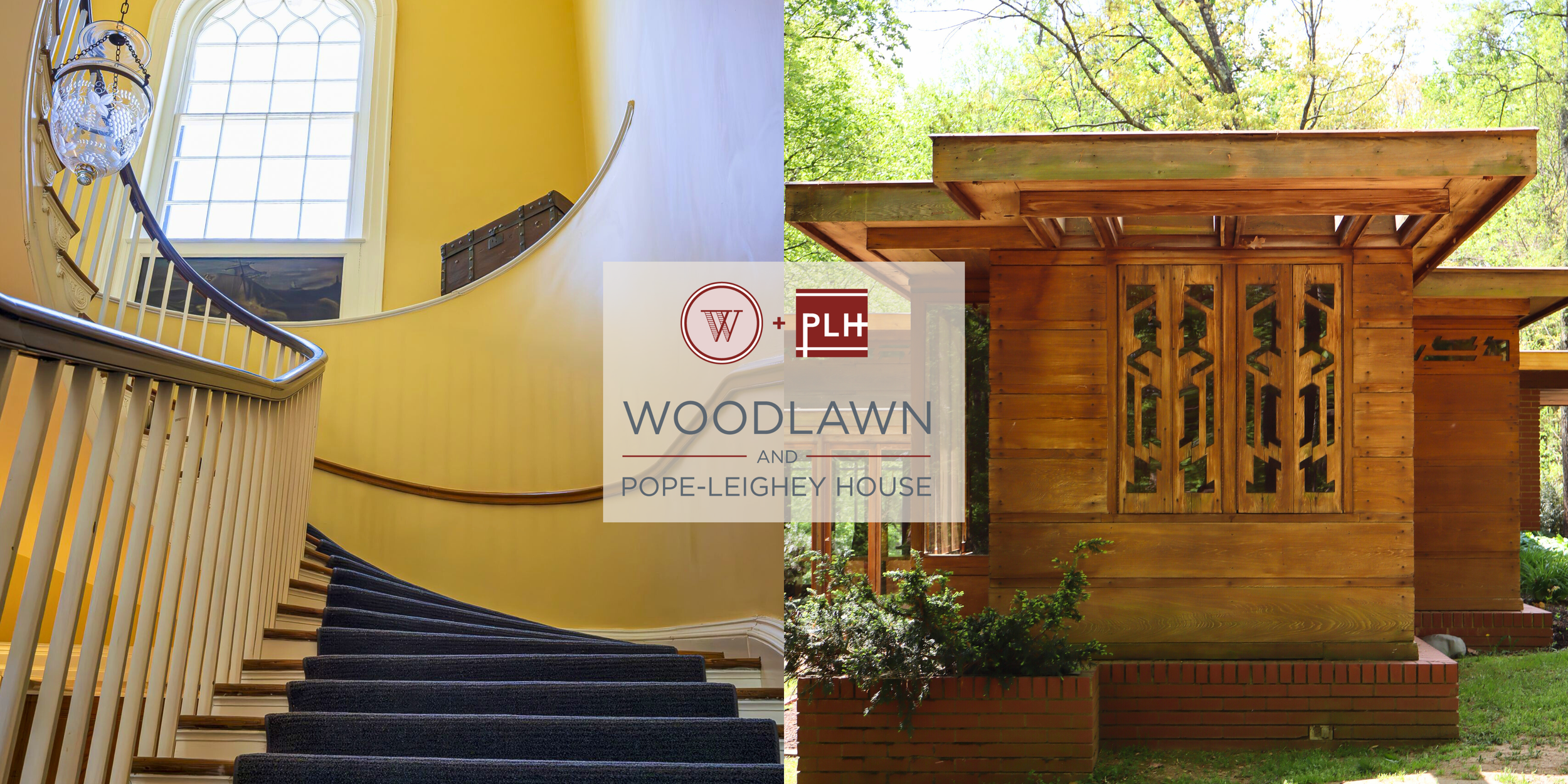
Woodlawn & Pope-Leighey House are two iconic, historic homes owned and operated by the National Trust for Historic Preservation and set on 126 historic acres of land that were originally inhabited by the Doeg people.
Woodlawn, completed in 1805, was built on land gifted to Eleanor Parke Custis and Lawrence Lewis by George Washington. Woodlawn operated as a plantation where the family enslaved more than ninety men, women, and children of African descent. After the Lewis family sold the property to Quakers in the 1840’s, Woodlawn became a free labor colony in the years prior to the Civil War. In the early 20th century, the owners modernized the home and in the 1950's Woodlawn was purchased and became the first public site of the National Trust for Historic Preservation.
The Frank Lloyd Wright-designed Pope-Leighey House was built for Loren and Charlotte Pope in Falls Church, Virginia in the 1940’s. The home was saved from demolition by the second owner, Marjorie Leighey, when it was moved to Woodlawn in the 1960’s. Today, visitors can explore the only Frank Lloyd Wright home open to the public in the D.C. area and be inspired by Wright’s Usonian architecture and a vision for affordable, well-designed housing.
As sites of the National Trust for Historic Preservation, Woodlawn & Pope-Leighey House believe all Americans deserve to see their history reflected here. These historic sites are dedicated to filling in the gaps of our cultural heritage, especially the stories of enslaved people, free Black communities, and their descendants.
Schedule a tour of our property and see for yourself how our various event spaces can match your vision. We offer rentals for private, corporate, and nonprofit events. Connect with our team and start planning your event today!
Woodlawn & Pope-Leighey House are proud members of the
following organizations
The International Coalition of Sites of Conscience is a worldwide network of “Sites of Conscience” – historic sites, museums and memory initiatives – that activate the power of places of memory to engage the public with a deeper understanding of the past and inspire action to shape a just future. The Coalition supports its members in many ways, including providing direct funding for civic engagement programs; introducing members to a global network of similarly minded sites, helping them establish best practices and new partnerships; organizing leadership and program development opportunities; offering dialogue training; and conducting strategic advocacy for individual members and the Sites of Conscience movement as a whole. Learn more at www.sitesofconscience.org.
The Potomac Heritage National Scenic Trail, (PHNST) which runs through the grounds of Woodlawn & Pope-Leighey House, is a 900-mile, Congressionally-designated trail network that runs from the mouth of the Potomac River in Maryland and Virginia to the Alleghany Highlands in western Pennsylvania. Spanning over 137 miles across its section in Northern Virginia, the PHNST represents a historic, cultural, and natural resource for the region’s residents and visitors to explore and enjoy.
The Northern Virginia PHNST Dashboard serves as a interactive tool to explore NVRC's data and resources for the region's section of the trail. Dashboard users can find regularly updated data on PHNST attributes, activities, and other information to learn about the trail and access materials to support regional trail planning and programming. Learn more at www.potomacheritagenova.com.
You're invited to plan a trip to Potomac Banks here in Northern Virginia. This is an area in southern Fairfax County steeped in history, culture, museums, natural resources and other attractions that tell the tale of the history of America. A visit here will place you in one of the most historically rich areas in the entire United States where you will find unique stories that make up the fabric of our local community and our nation as a whole. Get your free Potomac Banks Savings Pass today and receive discounted admission and more at the area's most visited attractions.
Learn more at www.fxva.com/southcounty/.
Virginia American Revolution 250 Commission (VA250) was established in 2020 to commemorate Virginia’s role in the 250th anniversary of American independence, the VA250 aims to form a more perfect union by educating Virginians about their history and civic duty and sharing diverse narratives that capture Virginia’s complete story and role in shaping the nation. The overarching goals are to educate Virginians, including our students, about our history, our founding ideals and our system of government, engage every community and all regions in events that tell a complete story, and to inspire Virginians to commit to American citizenship. Learn more at www.va250.org.















